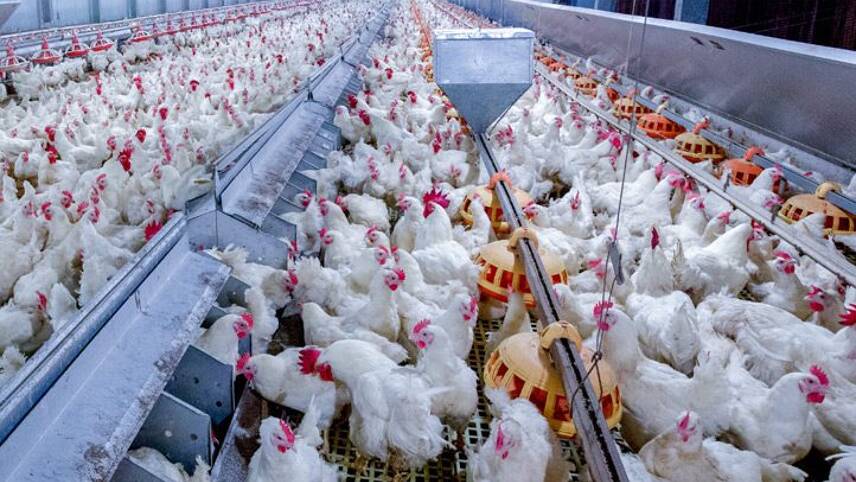Register for free and continue reading
Join our growing army of changemakers and get unlimited access to our premium content

The publication has been timed to mark World Food Day on Friday (16 October)
That is according to a new policy paper published by the Global Alliance for the Future of Food – a coalition of major foundations across the agri-food sector including the Ikea Foundation, WK Kellogg Foundation and Barilla Centre for Food and Nutrition.
The Alliance’s ‘Systemic Solutions for Healthy Food Systems’ report outlines a series of recommendations for governments looking to address the multitude of sustainability issues relating to existing industrial food systems. On the environment front, IPCC research has proven that humanity’s land use is mainly for agri-food and accounts for almost one-quarter of emissions. Food production is also to blame for three-quarters of deforestation to date and one-third of all food produced globally is wasted. On the social piece, more than three billion people receive either not enough food or too much, fuelling all manner of health problems.
While most national green recovery plans centre around decarbonising sectors like energy, industry and transport, the report details how policymakers can also create measures to improve food security, make supply chains more climate resilient and decrease the negative environmental and social impact of the agri-food sector.
It recommends that governments assess their existing domestic food policies in terms of their environmental and human health impacts, making similar forward-looking assessments before designing alternatives. International trade deals, both existing and proposed, should also be assessed.
Alternative policies created after these assessments should be aligned with international action frameworks to ensure they rise to the scale of the challenge, the report continues. Such frameworks include the Sustainable Development Goals (SDGs), notably Goal 2: Zero Hunger, and Goal 12: Responsible Consumption and Production. Goal 17, collaboration, is also emphasised. The report argues that multiple policy mechanisms are preferable to one overarching Bill and emphasises the importance of co-creation and partnerships across the value chain for delivery.
Financial mechanisms could also be deployed. The report recommends leveraging agricultural subsidies to promote methods that conserve or restore nature and soil health and the production of healthy, climate-resilient crops. Some existing subsidy frameworks, like those in the US and the EU, incentivise large scale production over regenerative methods. Similarly, health-promoting foods should be made more affordable with policy support.
Recommendations are additionally made for public engagement, including the development of dietary guidelines which promote diets that benefit both the environment and wellbeing, instead of furthering the financial interests of certain sectors or promoting outdated nutritional science. The EAT-Lancet Commission last year published dietary guidelines for a “one planet approach”, for example. Education on ecology, food production and dietary health should also be embedded at all stages, the report urges.
“2021 will be a critical year for the health and well-being of people and planet,” Tasting the Future’s founder and director Mark Driscoll said. “The UN Food Systems Summit, COP26 and COB15 are crucial opportunities to transform how we grow, harvest, distribute, market, eat, and dispose of food which will, in turn, enable us to tackle the root causes of malnutrition, climate change and biodiversity loss. With these new recommendations in hand, politicians and policymakers have a blueprint to develop the integrated policies that are so desperately needed at this time.”
The UK picture
Back in January, the Committee on Climate Change (CCC) published its recommendations to the UK government on reforming national food systems in line with net-zero. Incentives for low-impact farming methods; fresh funding for bioenergy production and peatland restoration and measures to reduce beef and dairy consumption on a per-capita basis were all encouraged.
Since then, the Agriculture Bill has returned to Parliament. It contains, in its current form, measures that will see farmers and land managers rewarded financially for work to improve air and water quality; boost soil health; implement flood mitigation and adaptation measures; improve access to the countryside or bolster animal welfare. The Bill is widely regarded as better for the environment than the EU’s Common Agricultural Policy. However, there are concerns that the Conservative Government is backtracking on some sustainability promises in order to secure post-Brexit trade deals.
The Fisheries Bill will also return to Parliament this week. In the interim, Defra has been consulting on new mandatory requirements for companies with international supply chains, with the aim being to eliminate deforestation risks globally. Many major food and drink businesses have submitted recommendations for strengthening the proposals.
As for the social sustainability of food systems, the UK has seen a sharp rise in food poverty and food bank use since lockdown measures were first announced in March. The English and Welsh governments recently introduced emergency legislation to ensure that children receiving free school meals would be supported through lockdowns, after campaigning from footballer Marcus Rashford, which garnered the support of millions.
Sarah George


Please login or Register to leave a comment.